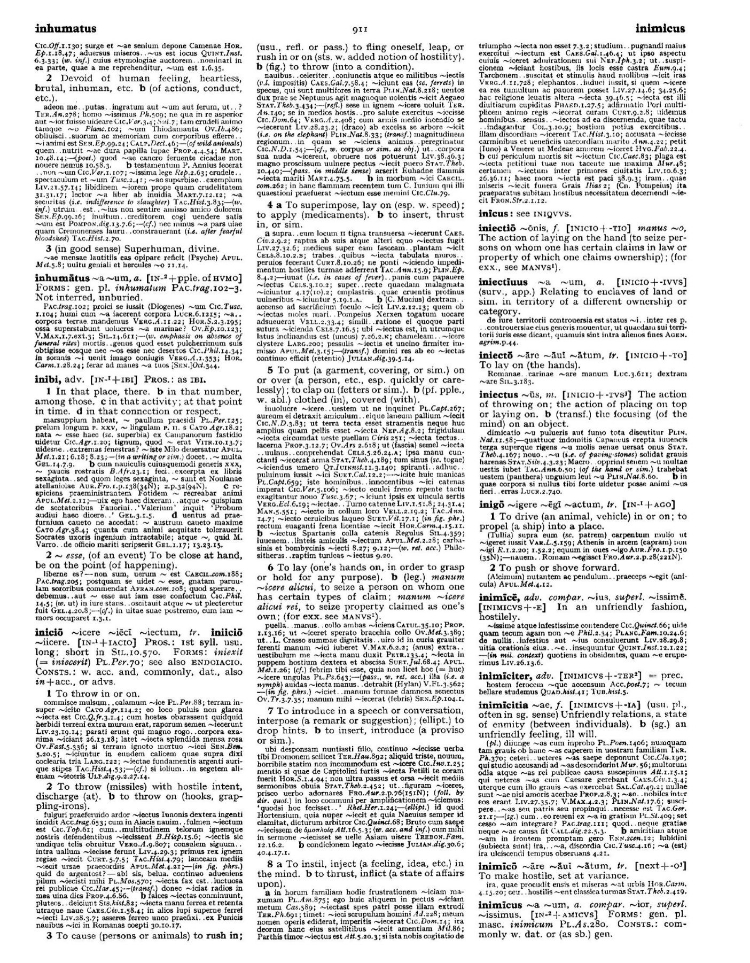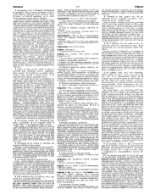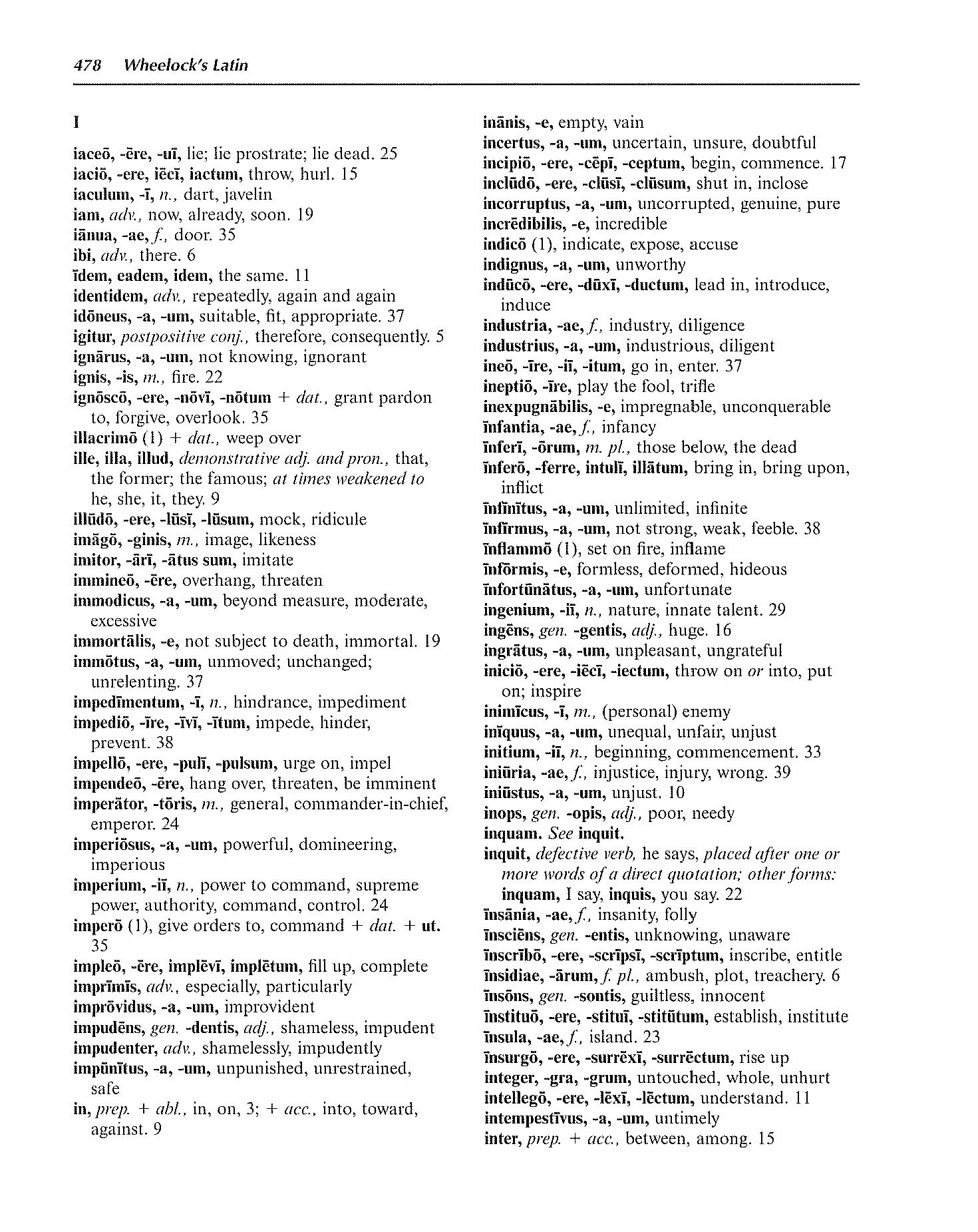
page_listing.tpl
page_subListingDetails.tpl
sub_listingDetails_style1.tpl
sub_listingDetails.title.tpl
inimīcus enemy
inimīcus is a Latin Noun that primarily means enemy.
Definitions for inimīcus
Wheelock's Latin
Noun
- 1
(personal) enemy
Oxford Latin Dictionary
Noun
- 1
(masc. or fem. as sb., often w. gen.) A personal (esp. political) enemy, opponent; (also superl.). (b) (applied to a nation collectively); also, one of a hostile army. (c) an opponent (of a policy, principle, etc.).
Adjective
- 1
(of persons, etc.) Unfriendly, ill-disposed (to a person). (b) (to a cause, principle, or sim.). (c) (of cities or nations, their rulers, or sim.). (d) (poet., of natural agencies). (e) (w. pass. force) regarded as an enemy, hateful.
- 2
(of actions, words, etc.) Displaying hostility, unfriendly. (b) (of weapons) used to hostile effect. (c) (of fighting) bitter, deadly.
- 3
Belonging to an enemy or enemies; (in augury) relating to the enemy.
- 4
(of things) Harmful, injurious (to).
- 5
Not conducive (to an activity, etc.), opposed (to), incompatible (with).
Sentences with inimīcus
Latin to English
Hi sunt inimici pessumi fronte hilaro corde tristi. [Hypobolimaeus]Compare Your worst enemies are those whose faces are cheerful while their hearts are bitter.
De inimico non loquaris male sed cogites.Compare Don't speak ill of your enemy: plot it.
Satis est superare inimicum, nimium est perdere.Compare It is enough to defeat an enemy, too much to ruin him.
Pessimum inimicorum genus, laudantes.Compare The worst class of enemies - the men who praise.
Ego, quominus ego inimicus sum, non recuso.Compare I will make no objection to his being a most bitter enemy to me.
Sum hic alius multum dispar, simplex et apertus veritas cultor, fraus inimicus.Compare There are others far unlike these, simple and open lovers of truth, enemies of deceit.
Declension table for inimīcus
Cactus2000
| Singular | Plural | |
| Nom. | inimīcus | inimīcī |
| Gen. | inimīcī | inimīcōrum |
| Dat. | inimīcō | inimīcīs |
| Acc. | inimīcum | inimīcōs |
| Voc. | inimīce | inimīcī |
| Abl. | inimīcō | inimīcīs |
Data sources
Notes
- Definitions
- Frederick M. Wheelock, Wheelock's Latin, 6th ed., rev. Richard A. LaFleur (New York, NY: HarperCollins Publishers, 2005): 478.
- P. G. W. Glare, Oxford Latin Dictionary, Vols. 1-8 (Oxford: Clarendon Press, 1982): 911.
- Word frequencies
- Christopher Francese, "Latin Core Vocabulary," Dickinson College Commentaries, last modified 2014, http://dcc.dickinson.edu.
- Paul B. Diederich, The Frequency of Latin Words and Their Endings, PhD diss., (Columbia University, 1939).
Bibliography
Allen, Joseph H. Allen and Greenough's New Latin Grammar for Schools and Colleges: Founded on Comparative Grammar. Edited by James B. Greenough, George L. Kittredge, Albert A. Howard, and Benjamin L. D'Ooge. Boston, MA: Ginn & Company, 1903.
Crystal, David. A Dictionary of Linguistics and Phonetics. 6th ed. Oxford, UK: Blackwell Publishing, 2008.
Delatte, Louis, Suzanne Govaerts, Joseph Denooz, and Etienne Evrard. Dictionnaire fréquentiel et index inverse de la langue latine [Frequency Dictionary and Inverse Index of the Latin Language]. Liège, Belgium: Laboratoire d'analyse statistique des langues anciennes de l'Université de Liège (L.A.S.L.A.), 1981.
Diederich, Paul B. The Frequency of Latin Words and Their Endings. PhD diss., Columbia University, 1939.
Francese, Christopher. "Latin Core Vocabulary." Dickinson College Commentaries. Last modified 2014. http://dcc.dickinson.edu/latin-vocabulary-list.
Gildersleeve, Basil L., and Gonzales Lodge. Gildersleeve's Latin Grammar: Third Edition, Revised, and Enlarged. 3rd ed. London, England: Macmillan and Co., 1903.
Glare, Peter G.W. Oxford Latin Dictionary. Vols. 1-8. Oxford, England: Clarendon Press, 1982.
Krüger, Bernd. "Latin Conjugation Tables." Cactus2000. Accessed May 5, 2023. https://latin.cactus2000.de/index.en.php.
Pierson, Nick. "Sound of Text." Accessed October 26, 2019. https://soundoftext.com.
Wheelock, Frederick M. Wheelock's Latin. 6th ed. Revised by Richard A. LaFleur. New York, NY: HarperCollins Publishers, 2005.
Wiktionary Contributors. "Victionarium." Wikimedia Foundation, Inc. Updated March 18, 2019. https://la.wiktionary.org/wiki/Victionarium:Pagina_prima.
Citation
Chicago (17th ed.)
Allo Contributors. "inimīcus, inimīcī (n.) - Latin Word Definition." Allo Latin Dictionary. Last modified . Accessed February 19, 2026. http://ancientlanguages.org/latin/dictionary/inimicus-inimici.
Entry created on . Last updated on .








